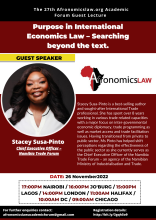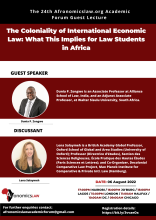CFP: Young Scholar's Workshop - Canadian Yearbook of International Law and International Law Group, University of Ottawa
The Canadian Yearbook of International Law, Canada’s leading peer-reviewed international legal journal, will host a Young Scholar’s Workshop on November 1, 2023 in partnership with the International Law Group of the University of Ottawa Faculty of Law.

